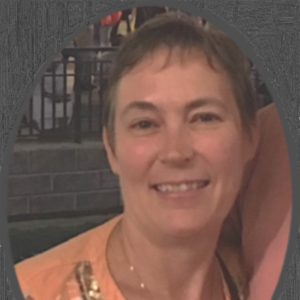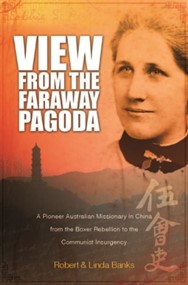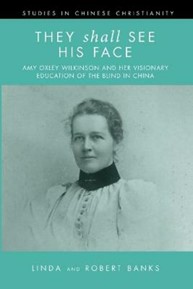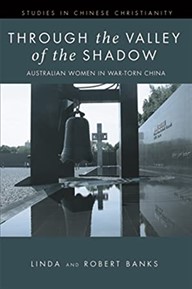As a follow up to last week’s book review of Children of the Massacre: The Extra-Ordinary Story of the Stewart Family in Hong Kong and West China, Andrea Klopper spoke with the book’s authors, Robert and Linda Banks. The interview was originally conducted on Zoom on 21 March 2022.
My curiosity was piqued regarding the Australian link mentioned by the Canberra-based authors of Children of the Massacre: The Extra-Ordinary Story of the Stewart Family in Hong Kong and West China. Their other books were also on missionaries in China. Robert and Linda Banks kindly agreed to a Zoom conversation.
In answer to my first question about what prompted their interest in China, Robert responded. As a university student, he visited a great aunt known in the family as “China Auntie” due to the fact that she had worked there for thirty-five years. Sophie Newton (her actual name) died a couple of years later, leaving her personal papers, diaries, letters, and photos to Robert, perhaps knowing that he was a committed Christian with an interest in mission and studying history. Pulling together the fragmentary material took much work, and many obstacles had to be overcome to put together a more comprehensive story of her life and work in View from the Faraway Pagoda (2013).
During their research, Robert and Linda “met” Amy Oxley who set up a school for the blind. She was the focus of their second book, entitled They Shall See His Face (2021). Apart from both being women—who formed a large percentage of the missionary force during the late 1800s—both Sophie and Amy had heard Robert Stewart speak in the 1890s. A trip to China in 2012 to talk to a Chinese amateur historian of mission, whom they had first met online, led to a minibus journey for several hours out of Fuzhou to the village site of the Gutian massacre about which they’d learned. It was this that moved them to tell the Stewarts’ story and that of their children.
Asked about any obstacles to their research, they mentioned how the Church Missionary Society archives were not open for materials from the past fifty years. Any notes they made had to be handwritten rather than photocopied or photographed. Subsequent digitalization of newspapers and archival materials enabled much more to be discovered. Linda trawled through family trees to locate the unusual Dutch name of a husband of one of the Stewart grandchildren. They were able to “providentially” connect with Arthur Stewart’s daughter and Evan’s son. The latter proved an invaluable source, though they had to negotiate the angles taken in some places of the account. It was exciting to open the computer daily to find new photos sent by the family. Linda’s favorite is the one of Reg going to propose to Mildred travelling on a mountain pony (Children of the Massacre p. 68)!
For Robert, a lover of films, there was the “unexpected delight” of getting beyond the archival and other materials, putting the various pieces together “like stepping more and more closely into a movie.” He explained, “You get so close to the characters that even when the archives stop short and don’t give what you’d like to know, you begin to sense it.” Though this resulted in taking risky steps in writing, he observed, frequently the hunch was confirmed at a later stage.
For both Robert and Linda, the joy was in being able to share the stories that sometimes the families themselves had not heard or did not know. For the Chinese people they met in their travels, they felt they were telling forgotten stories, telling stories considered culturally imperialist but nonetheless quite remarkable. For all their readers, there is the hope of telling stories of people not usually acknowledged, hence the particular focus on women who, unable to bear the respectable title of pastor or minister, served in the areas of medicine and education.
The Banks’s current project is reworking the biography of Sophie, who set it all in motion, to include more material discovered during their later work and for a wider audience rather than a specifically Australian one. I think this great aunt will be smiling at the way in which God has answered her prayers. Robert came across his own name in the lists of people for whom she prayed.
Image credit: Zichao Zhang via UnSplash

Andrea Klopper
Andrea Klopper has taught in South Africa, the United Kingdom, and China. She has mentored Mandarin language students and developed a cultural orientation and acquisition program which she used in two organizations. She is now being challenged to make friends in a new location and learning a new language. She …View Full Bio
Are you enjoying a cup of good coffee or fragrant tea while reading the latest ChinaSource post? Consider donating the cost of that “cuppa” to support our content so we can continue to serve you with the latest on Christianity in China.


